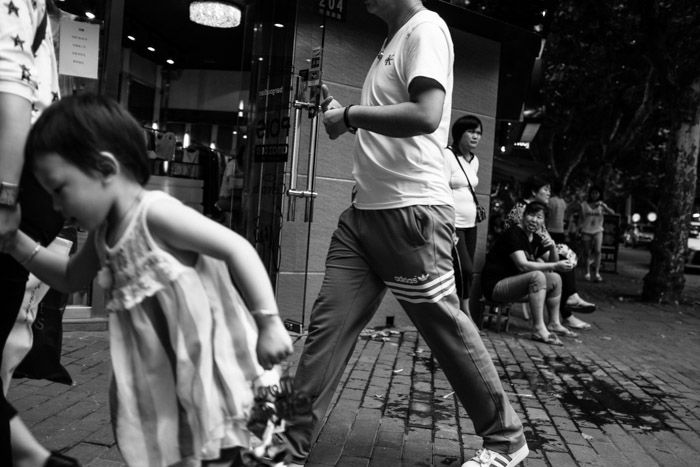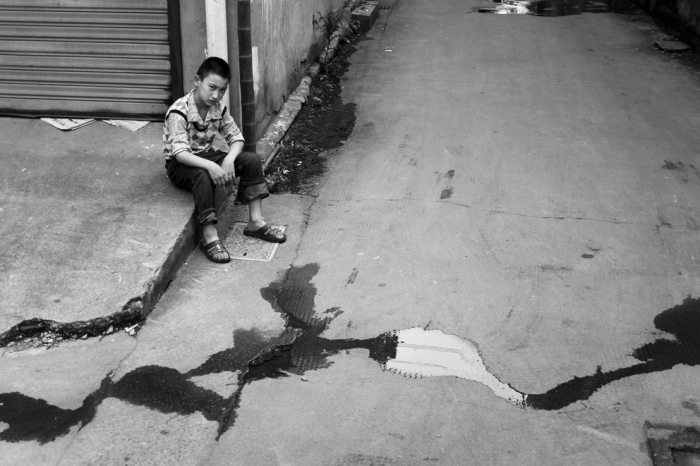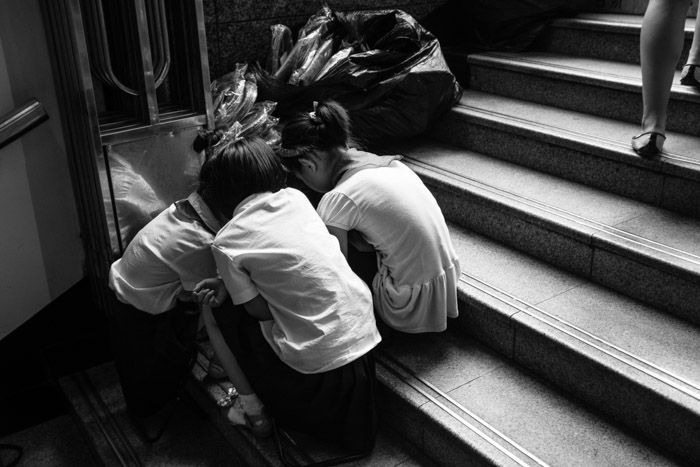blog
Interview with photographer Haoyuan Ren
F-Stop Magazine: How did you first become involved in photography and what led to you working in this medium as an artist?
Haoyuan Ren: My mother decided to buy me a DSLR at the time in 2007. She thought I was confused about life and wanted me to “stop wasting time”. So I eventually started taking photography classes and became more and more interested, switching from studying IT to photography full time.
F-Stop: You grew up in China and have said that there is an “eastern aesthetic” that influences your work. Can you talk about this a bit?
HR: I moved away from China at the age of 11, so I am influenced greatly by both China and the US. My father moved about the art world and my mother was a tiger mom. With that combination I was brought to all kinds of extracurricular art classes as a child. When I first started shooting, I’ve noticed specifically that my composition had inherited the feel of Chinese writings and as well as the massive use of negative space as it appears in Chinese water paintings. Now, as I have grown and reconnected with my culture, my aesthetic began moving beyond just the visuals. Today, I often find myself describing collectivism, patriotism, objectification, alienation, and other general seriousness through my work as a response to my youth.
F-Stop: The current “Black and White” issue of F-Stop includes photographs from your “China 2” series. What is this project about and what inspired you to make this work?
HR: To understand China 2 we must first quickly talk about China 1. In 2009 after graduation, I decided to wander around in China after being away since age 11. I was an outsider with little knowledge of the current culture and at that time I didn’t even know if I liked being Chinese. I shot everyday when I was there, largely aligning myself mentally to the migrant workers from the country side because in a sense we were all aliens to the modern city. China 2 was created 4 years later, by then I had a much stronger grasp of who China is and what it is to me. I decided to dig a little deeper and photograph my understand of China is today. Common themes appearing in China 2 includes hostility, lack of identity, disconnection, and an interesting dichotomy between the apathy of the people and the positivity of all inanimate faces.
F-Stop: Can you discuss your process for making these images? Do you carry your camera with you everywhere? Do you interact with your subjects?
HR: I traveled with a couple of cameras, visiting friends sometimes and wandering by myself in others. Blending in was the most important, as well as being discreet. So in the end, only few of the 28 images in the series was taken with a DSLR, everything else was shot with a x100s because of the silent shutter. During those days, I didn’t travel to make a series. The photos were a byproduct of my observation as I try to experience whatever it was I saw.
F-Stop: Do you have a favorite image from this series? If so, which one and why is it the image that speaks to you most?
HR: I don’t think I have a favorite image in this series. The process for this project was very organic in the way that I didn’t have the time to evaluate what I shot. During the editing process after the trip, the 3000+ images was then narrowed down to present a personal understand to what China is.
F-Stop: What do you hope people see or feel or perhaps learn when they look at your photographs?
HR: I like people to see whatever they want to see in my photos. I often find it a lot more interesting when people bring in their experiences in interpreting my work. The caveat is that there could be images that certain viewer doesn’t understand due to the lack of certain experiences, making it harder to interpret the series as a whole. But maybe, they can see the melancholic dry humor that I can’t seem to shake out of.
F-Stop: What are you working on now?
HR: Months ago I got a Ricoh GR. That camera has changed the way I shoot from composition to execution. I could get close with a point, be a typical Chinese tourist with a camera. I have been able to approach and interact with subjects that I would otherwise have trouble accessing. I’m now doing work that is a lot more “in your face” while continuing to explore the ideas discussed prior.
F-Stop: What photographers or other artists inspire you?
HR: I absolutely love the works of Daido Moriyama as well as other Asian photographers.
For more of Haoyuan Ren’s work: www.haoyuanren.com
Location: Online Type: Interview
One response to “Interview with photographer Haoyuan Ren”
Leave a Reply
Events by Location
Post Categories
Tags
- Abstract
- Alternative process
- Architecture
- Artist Talk
- artistic residency
- Biennial
- Black and White
- Book Fair
- Car culture
- Charity
- Childhood
- Children
- Cities
- Collaboration
- Community
- Cyanotype
- Documentary
- Environment
- Event
- Exhibition
- Faith
- Family
- Fashion
- Festival
- Film Review
- Food
- Friendship
- FStop20th
- Gender
- Gun Culture
- Habitat
- Hom
- home
- journal
- Landscapes
- Lecture
- Love
- Masculinity
- Mental Health
- Migration
- Museums
- Music
- Nature
- Night
- nuclear
- p
- photographic residency
- Photomontage
- Plants
- Podcast
- Portraits
- Prairies
- Religion
- River
- Still Life
- Street Photography
- Tourism
- UFO
- Water
- Zine







[…] http://www.fstopmagazine.com/blog/2014/01/interview-with-photographer-haoyuan-ren/ […]